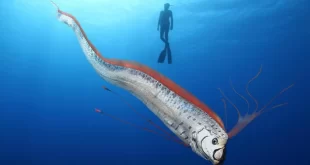Job description
Applicants are invited for a position as Postdoctoral Fellow at ARENA Centre for European Studies at the University of Oslo. The appointment as a postdoctoral fellow is for 24 months, without duty work (see details under “responsibilities”). The position is available from 1 January 2022 – 31 December 2023.
ARENA is a highly renowned centre for research on the transformation of Europe, in particular on the processes of political change. It aims at theoretically founded and innovative research. ARENA offers a stimulating intellectual environment for cooperation and scholarly debate and has a staff of well-qualified and committed scholars. The centre and its research projects have received excellent evaluations. The working language at ARENA is English.
More about the position
The fellowship is part of the project “Deporting Foreigners: Contested Norms in International Practice (NORMS)”, which is funded by the UTENRIKS programme of the Research Council of Norway (2021-2024). NORMS is an international research project with partner institutions in Norway, the Netherlands and Ethiopia, led by Senior Researcher Erlend Paasche at the Norwegian Institute for Social Research. The Postdoctoral Fellow’s contact person at ARENA will be Research Professor Helene Sjursen.
Deportation of irregular migrants and rejected asylum seekers is widely known to pit host states against these migrants, but deportation also pits host states against these migrants’ origin states. Conceptualising this as a conflict of interests, legal scholars and political scientists have focused on the incentives and coercion used by the host state to elicit the rational compliance of the origin state. In the NORMS project, we look at how state agents from host and origin states alike seek to legitimise or de-legitimise deportation, promoting competing norms in a contested policy field. We take a practice-oriented and cross-country comparative approach to these norm dynamics. The comparative design includes two host states (Norway and Sweden) with differing policies and policy debates, as well as four distinct states of origin (Afghanistan, Iraq, Somalia and Ethiopia). Complementing this analysis, a Postdoctoral Fellow will examine norm dynamics at the supranational level within the EU agency Frontex.
The task for the Postdoctoral Fellow will be to analyse norm dynamics within Frontex based in part on the narratives of Norwegian and Swedish police officers who have participated in return operations carried out by the agency.
Frontex plays an increasingly central role in immigration law enforcement in Europe. One of the core activities of the multinational agency is to support EU+ member states in returning irregular migrants, coordinating return operations and implementing return decisions taken by national immigration authorities. By Frontex’ own account, return operations are among the most challenging activities that it undertakes.
This is the rationale for studying norm dynamics within Frontex in the empirical context of its return operations. Drawing in part on interview data and narrative analysis, what normative ideas of police professionalism are said to guide the interpretation of formal guidelines? How are norms linked with professional identity and cultural values? How are they promoted and contested by police officers who work closely together in joint operations but come from heterogenous organizational cultures? More broadly, such questions touch upon more fundamental questions regarding the optimal degree of autonomy of Frontex from EU+ member states, the accountability of Frontex as an EU agency, and the risks and benefits of an EU agency that some see as transitioning into a centralized European border police corps.
The Postdoctoral Fellow will be expected to conduct a minimum of 30 interviews with Norwegian and Swedish police officers who have participated in return operations carried out by Frontex, and to produce two academic papers for peer-reviewed international journals and two policy briefs. The Postdoctoral Fellow will also be expected to consider other sources of data and analytical approaches that complement the interviews and narrative analysis, and to contribute to the NORMS coordination team with a set of project-related tasks, including
- Dissemination of research results to decision-makers, practitioners and the wider public
- Editorial work on the project blog and newsletter
- Co-organization of academic, policy and public events
- Participation in project workshops and in meetings with the project’s advisory board.
Candidates must hold a degree equivalent to a Norwegian PhD degree in political science, policing studies, criminology, sociology, anthropology, or another relevant discipline within the social sciences. The candidate’s PhD dissertation must be submitted for evaluation by the application closing date. Appointment as Postdoctoral Fellow is dependent on the successful completion of the candidate’s PhD degree.
Documented expertise in the study of law enforcement and/or the practice-based study of norm dynamics is desirable but not a requirement. Experience with research methods relevant for this project, such as interviews, is required.
Considerable weight will be accorded to the ability to conduct independent research, scientific excellence, critical and creative thinking as well as the ability to be a genuine team player.
Experience of active participation in the international research community, such as workshops, seminars and academic conferences is seen as a merit. Experience or interest in disseminating research and results across multiple platforms is also seen as a merit.
Applicants must have excellent written and oral proficiency in English. A good command of either Norwegian or Swedish would be an advantage. Residence in Norway is expected.
Personal skills
- Strong communications skills
- Able to work both in a team and independently, using own initiative
- Efficient, capable of handling multiple tasks simultaneously
- Good time management.
We offer
- A gross salary of NOK 534 400 – 615 800 per annum depending on level of competence and/or length of service (position code 1352)
- A stimulating professional work environment
- Good pension benefits under the Norwegian Public Service Pension Fund scheme
- Attractive welfare benefits
- Relocation support from the international staff mobility office (ISMO)
- Opportunity to attend Norwegian language classes
- Oslo offers a family-friendly environment with rich opportunities for culture and outdoor activities
- Norwegian work life is known for gender equality and work life balance
- Access to professional networks and office space both at ARENA and at the Norwegian Institute for Social Research, one of the leading research institutions in Norway for the study of migration control.
How to apply
The electronic application should include
- Application letter with a statement of interest, summarizing research interests and how the applicant will contribute to the centre and project (1-2 pages)
- A research proposal (maximum 3000 words including references). The proposal should clarify the theoretical framework for the research, elaborate on the research questions sketched out here, explain how the research contributes to the existing literature, and describe the methodology and publication plan
- A CV including education, positions, research experience, administrative experience and other qualifying activity
- Academic transcripts (university degrees only)
- Copy of PhD diploma or documentation of thesis submission. Applicants who have not yet defended their PhD dissertation need to include a letter confirming that it is submitted for defense
- Copy of what you consider to be your best publication to date. This must be one publication only, and preferably a single-authored article relevant to the project. If a co-authored publication is uploaded, the applicant’s individual contribution must be clarified and confirmed by co-authors
- A complete list of publications, clearly distinguishing between academic and non-academic publications
- Names and contact details of two references (name, relation to candidate, email and telephone number).
Please note that there is no separate prompt for uploading such documents in the application portal. The requested documents must therefore be uploaded as separate “Attachments”.
The application with attachments must be delivered in our electronic recruiting system. Please follow the link “apply for this job”. Please note that all documents should be in English or a Scandinavian language. Foreign applicants are advised to attach an explanation of their University’s grading system.
The application deadline is 15 September 2021. The screening and evaluation of the candidates will begin immediately. We expect the evaluation process from the application deadline to an offer is made to take 12-16 weeks, depending on the number of applications. The position will be awarded from 1 January 2022 or a mutually agreed upon date.
Formal regulations
Please see the guidelines and regulations for appointments to Postdoctoral fellowships at the University of Oslo.
Interviews will be part of the appointment process.
The University of Oslo has an Acquisition of Rights Agreement for all employees for the purpose of securing intellectual and property rights to research results etc.
The University of Oslo aims to achieve a balanced gender composition in the workforce and to recruit people with ethnic minority backgrounds.
According to the Norwegian Freedom of Information Act (Offentleglova) information about the applicant may be included in the public applicant list, also in cases where the applicant has requested non-disclosure.
 Etudes Non Stop Study Non Stop
Etudes Non Stop Study Non Stop



